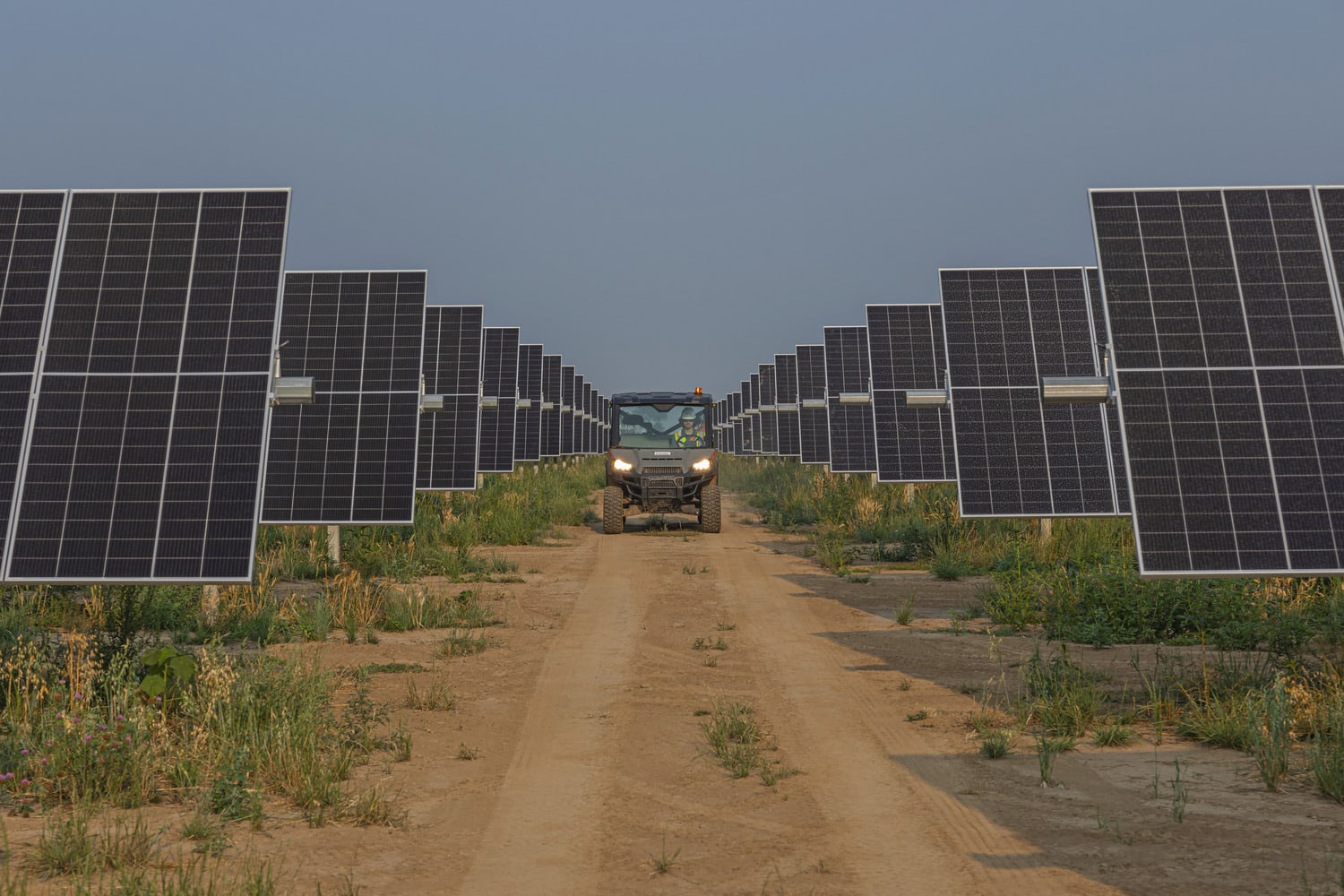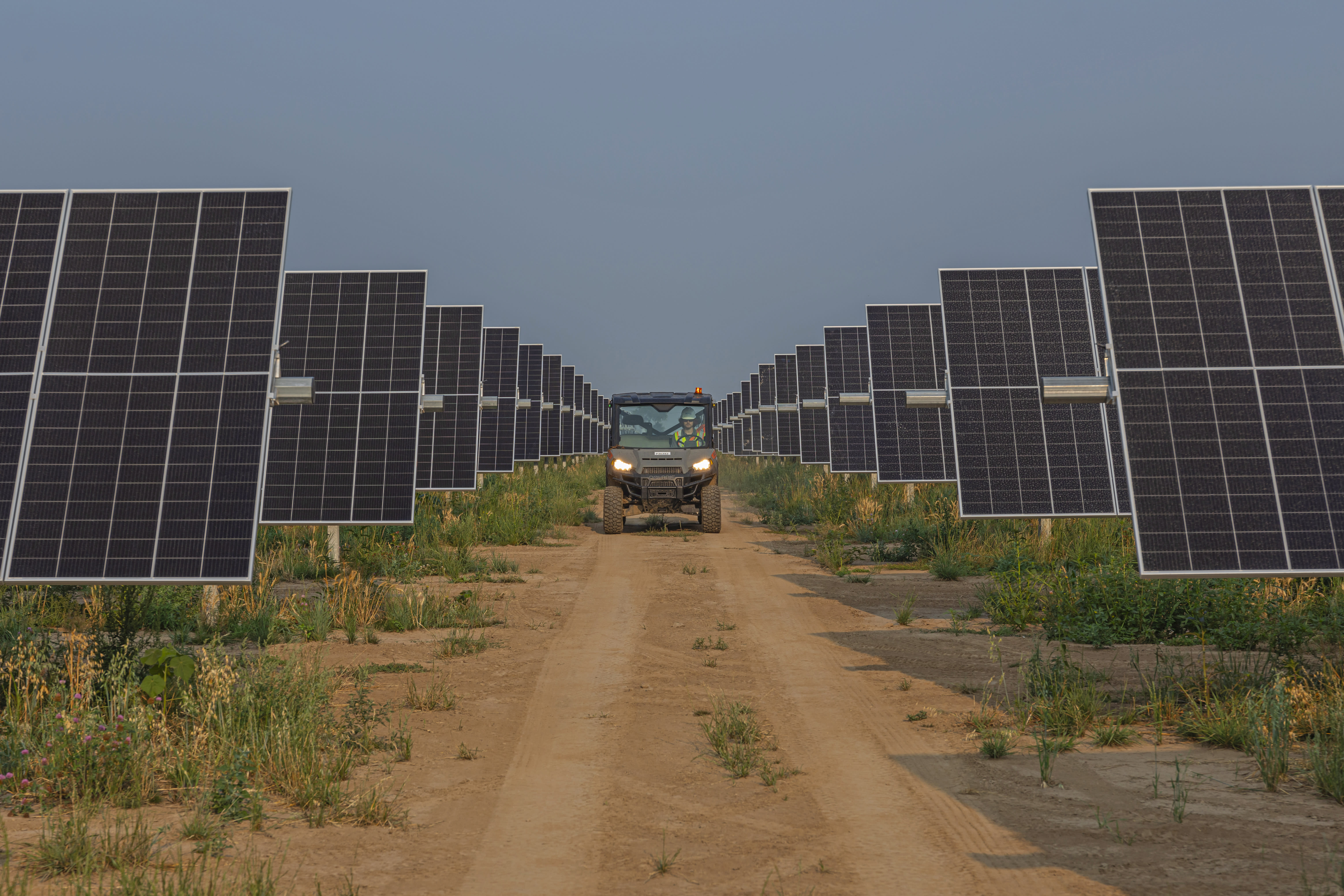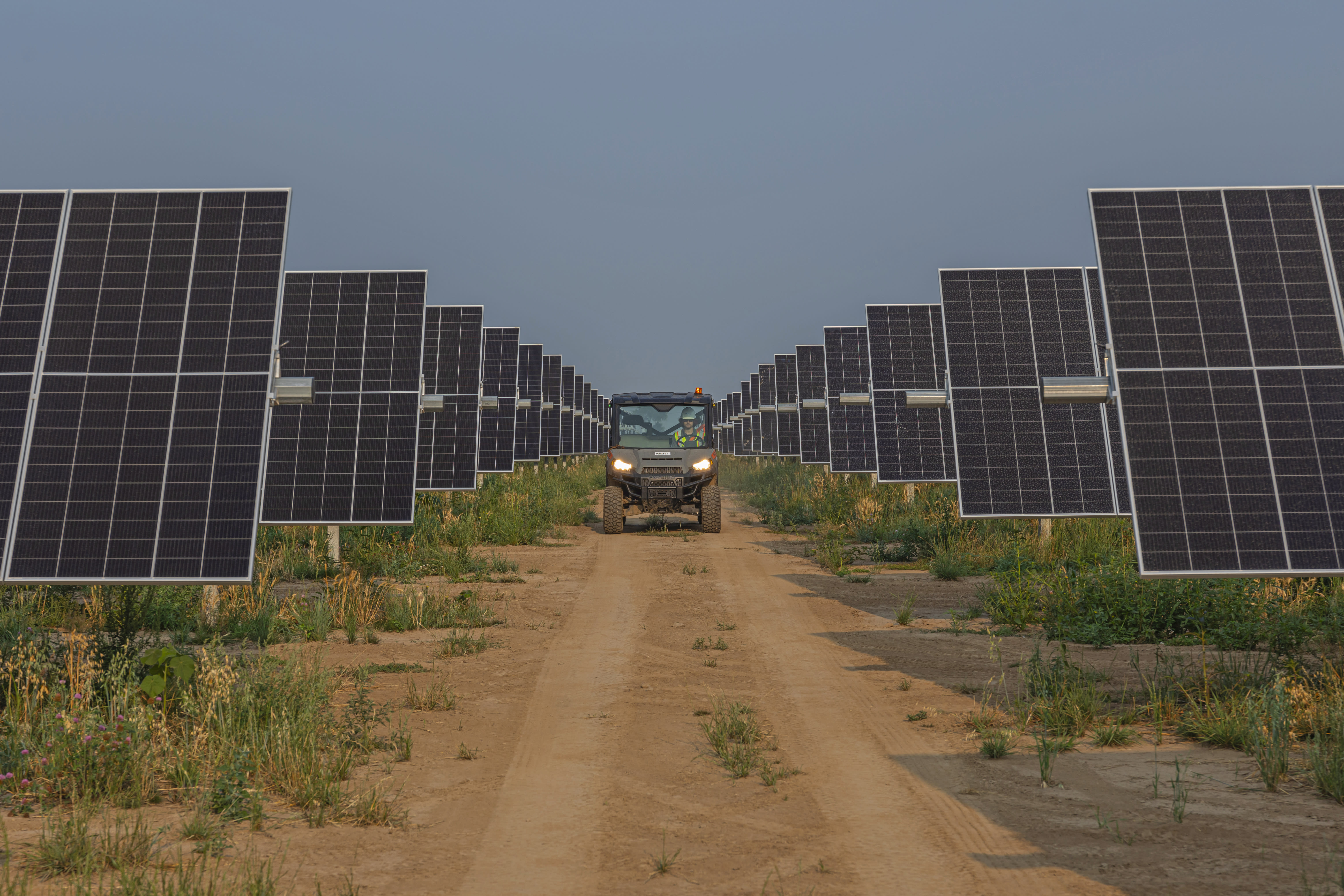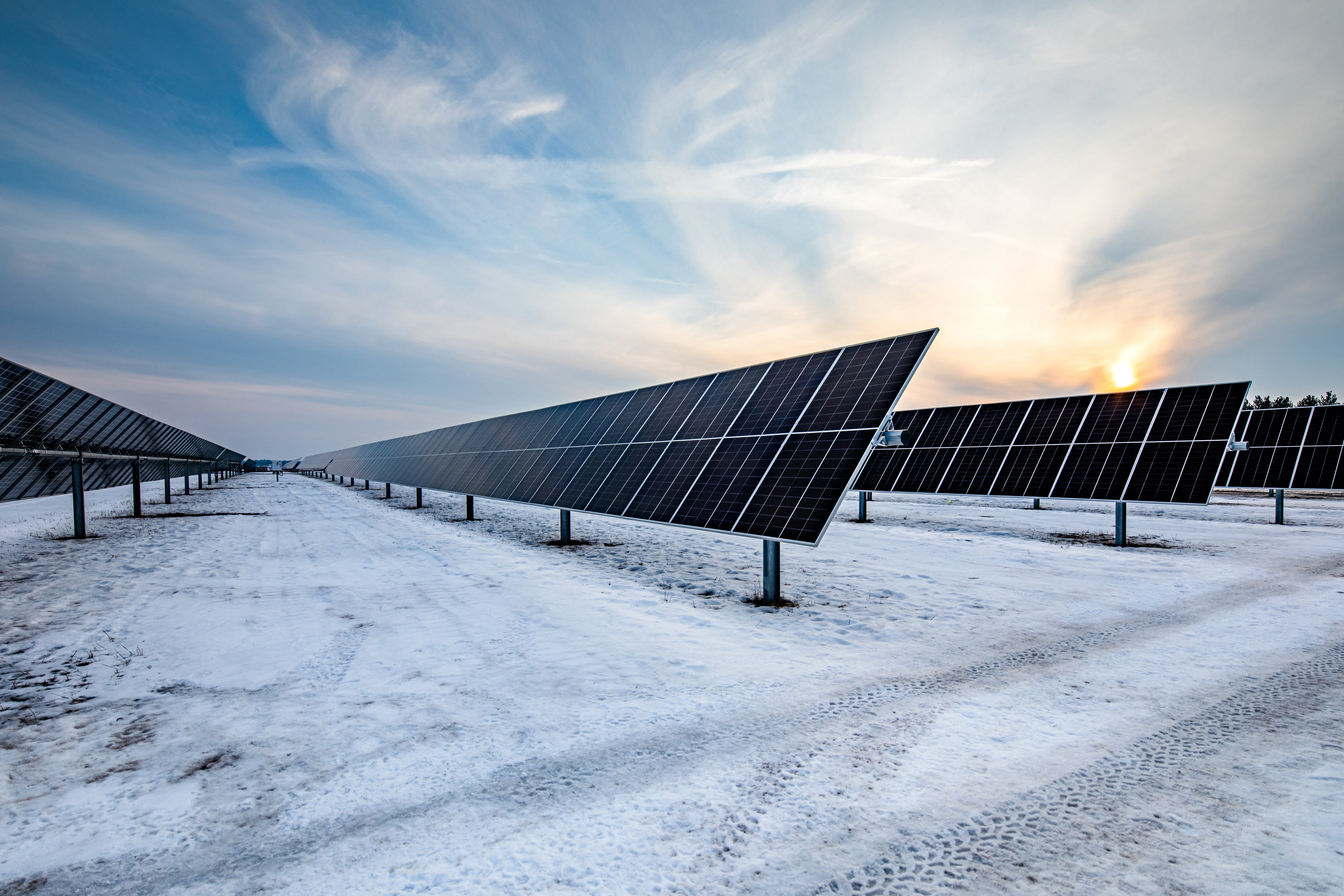
KANSAS CITY, Missouri — Burns & McDonnell has completed engineer-procure-construct (EPC) and self-perform construction services for nine solar projects across Wisconsin. The projects — part of Alliant Energy’s Clean Energy Blueprint — will power approximately 170,000 homes in their first year of production. In addition to generating clean, zero-fuel-cost electricity for Alliant Energy customers, the solar projects deliver long-term economic and financial benefits to local communities.
Burns & McDonnell started construction on these sites in 2021 with projects completed in stages. All sites were delivered on time amid COVID-19, labor and supply chain challenges that have troubled the industry.
“When you look at all that’s happened in the solar industry over the past three to four years, it’s a significant achievement to complete these projects on schedule,” says Chad Cotter, vice president of solar construction, Burns & McDonnell. “Having our EPC team, self-perform crews, environmental and permitting specialists, and substation and interconnection support teams integrated with Alliant Energy and the local union halls early in the project was critical to achieving certainty in outcome and delivering on time. But I think most important was Alliant Energy’s bold vision to move forward with these projects despite the volatile period that paused many other projects across the country.”
“Placing these solar projects into service is a major accomplishment that will benefit our customers for decades,” says Tim Kreft, senior manager of strategic projects at Alliant Energy. “By leveraging the latest in solar technology to diversify our generation portfolio, we are delivering safer, cleaner and more reliable energy. These strategic investments are just one way we’re avoiding long-term costs while building stronger communities.”
The solar program employed over 1,300 craft workers. As part of a commitment to support the local employment base, an apprenticeship program was instituted through AZCO, the union construction subsidiary of Burns & McDonnell. The program provided field-based training and hands-on experience in the trades for 230 apprentices working to become carpenters, electricians, laborers, operators and millwrights. Of the total craft workforce for the program, over 75% were Wisconsin residents. Additionally, multiple tours were conducted for local high school and secondary trade school students, emphasizing career opportunities and pathways for entering the trades.
“Working closely with Alliant Energy, the local union halls and contractor partners, we were able to help Alliant Energy deliver exceptional value to customers across Wisconsin while keeping project dollars in the community,” says Josh Ronk, construction project manager, AZCO. “When you can train craft and give them the tools and resources to continue on to the next job site, it’s fulfilling.”
In a testament to the safety culture of the program, Burns & McDonnell presented the firm’s Blue Heart Safety Award to seven Wood County Solar Project employees whose quick thinking and CPR helped save the life of an operator who experienced a heart attack on the job site. “‘Everyone goes home safer’ is the mentality we apply each day on these sites,” says Seth Hanebutt, program manager, Burns & McDonnell.
From the outset, Alliant Energy sought to develop and construct these projects in a way that would benefit the environment. To do this, Burns & McDonnell worked with Alliant Energy to follow the Envision Sustainability Framework. The Bear Creek, Wood County and North Rock sites were awarded Platinum Envision ISI verification – the highest award level – in recognition of their contributions to sustainable development and clean and renewable energy. Certification applications for the other six sites are awaiting final decision.
“Planting native grasses and pollinator plant species allows the sites to serve as multiuse land, fostering biodiversity and supporting Alliant Energy’s sustainability initiatives,” says Allison Chapin, environmental project manager, Burns & McDonnell.
“Large programs like this come with large challenges, and our integrated project team rose to meet them,” says Josh Ahrens, manager of solar engineering, Burns & McDonnell. “By having engineering integrated within our self-perform team, we created efficiencies that helped us identify the critical path and work together to meet the schedule while also allowing us to learn from challenges that arose and build a better mousetrap for future projects.”
Nine greenfield substations were also built during this project, with six gen-tie lines consisting of approximately 8 miles of 69-kV and 138-kV transmission to get the power to the grid. To alleviate supply chain issues, the team used temporary high-voltage gas circuit breakers decommissioned from an Alliant Energy coal plant to maintain the project schedule while waiting for high-voltage gas circuit breakers to arrive.
The nine solar facilities span nearly 5,000 acres and collectively add 764 MW of solar capacity to Alliant Energy’s diverse generation portfolio:
- Albany Solar Project, a 50-MW site.
- Bear Creek Solar Project, a 50-MW site.
- Beaver Dam Solar Project, a 50-MW site.
- Cassville Solar Project, a 50-MW site.
- North Rock Solar Project, a 50-MW site.
- Paddock Solar Project, a 65-MW site.
- Springfield Solar Project, a 100-MW site.
- Wautoma Solar Project, a 99-MW site.
- Wood County Solar Project, a 150-MW site.
Burns & McDonnell is a family of companies bringing together an unmatched team of 14,500 engineers, construction and craft professionals, architects, and more to design and build our critical infrastructure. With an integrated construction and design mindset, we offer full-service capabilities. Founded in 1898 and working from 75 offices globally, Burns & McDonnell is 100% employee-owned. Learn how we are designed to build.









